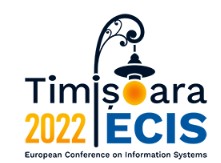Paper Number
1808
Abstract
Although fake online consumer reviews (OCRs) and fake users are an increasing problem for online review systems, there is no consensus on how digital platforms should handle them after their detection. Therefore, platforms use different displaying strategies for detected fake OCRs and fake users, such as “doing nothing”, censoring, or tagging them. It is, however, still unclear how these different strategies affect trust in multiple dimensions (i.e., trust in OCRs, reviewers and platform) and willingness to pay of consumers. We therefore propose in this research in progress paper an incentive-compatible experimental design for examining how different displaying strategies for fake OCRs and fake users influence consumers’ trust dimensions and willingness to pay. By conducting the proposed experiment, we expect to provide relevant insights for researchers and practitioners on how platforms should display fake OCRs and fake users to mitigate negative implications on consumers, producers and platforms.
Recommended Citation
Erlebach, Stefanie; Kupfer, Alexander; Wrabel, Andrea; and Zimmermann, Steffen, "TAG ME IF YOU CAN – (HOW) SHOULD PLATFORMS TAG FAKE REVIEWS AND FAKE USERS?" (2022). ECIS 2022 Research-in-Progress Papers. 50.
https://aisel.aisnet.org/ecis2022_rip/50
When commenting on articles, please be friendly, welcoming, respectful and abide by the AIS eLibrary Discussion Thread Code of Conduct posted here.


